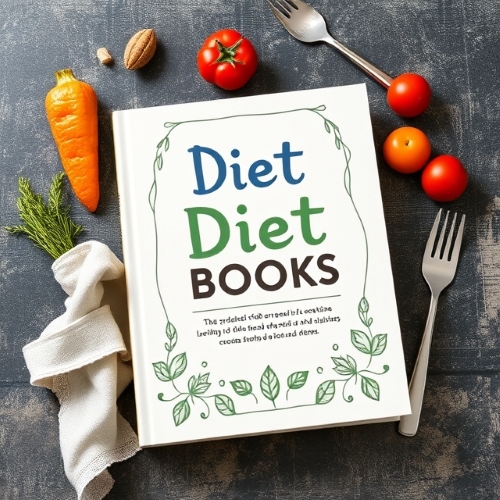In today’s fast-paced world, maintaining a healthy lifestyle can feel like a challenge. Nutrition plays a fundamental role in achieving overall well-being, supporting physical fitness, mental clarity, and long-term health. By understanding the principles of a balanced diet and making mindful food choices, anyone can take control of their health journey. Nutrition isn't just about eating the right amount of calories but also about ensuring the body receives a full range of essential nutrients. From vitamins and minerals to proteins and healthy fats, every bite we take has the potential to nourish our bodies. This section will guide you through the key elements of a healthy diet, current trends in nutrition, and practical tips to make sustainable food choices that complement an active, fulfilling lifestyle.

Carbohydrates are the body’s primary source of energy, but not all carbs are created equal. Complex carbs like whole grains, brown rice, quinoa, and oats provide sustained energy and contain essential fiber, which aids in digestion and promotes satiety. On the other hand, simple carbs found in processed foods and sugary snacks lead to energy spikes and crashes. Incorporating more whole grains, fruits, and vegetables into your diet ensures a steady release of energy, reducing the urge to snack on unhealthy foods throughout the day.
Protein is essential for muscle repair, immune function, and maintaining lean body mass. High-quality protein sources include lean meats like chicken, turkey, and fish, as well as plant-based options like beans, lentils, and quinoa. For those with busy lifestyles or specific fitness goals, protein powders and bars can be convenient ways to meet daily protein needs. Adequate protein intake is especially important for individuals engaged in regular exercise, as it helps with recovery and muscle building.
Fats have been wrongly demonized in the past, but healthy fats are crucial for brain function, hormone production, and overall health. Omega-3 fatty acids, found in fatty fish like salmon, chia seeds, flaxseeds, and walnuts, support heart health and cognitive function. Incorporating avocados, olive oil, and nuts into your diet can help reduce inflammation and promote heart health. Rather than avoiding fats altogether, focus on incorporating healthy fats while limiting trans fats and excessive saturated fats found in processed foods.
Tracking your macronutrients can be an effective way to ensure you're getting the right balance for your specific needs. Digital tools like MyFitnessPal, Cronometer, and other nutrition apps allow users to track their daily intake of carbohydrates, protein, and fats. These apps can provide insight into which areas of your diet might need adjustments and help tailor your nutrition to support weight loss, muscle gain, or maintenance. For beginners, simply aiming for balanced meals with a mix of all three macronutrients is a good start.
find out moreThe flexitarian diet is gaining traction as a flexible approach to plant-based eating. Flexitarians prioritize plant-based foods while still allowing occasional meat or animal products. This diet is less restrictive than veganism or vegetarianism, making it easier to adopt for those transitioning to a more plant-centric lifestyle. By focusing on fruits, vegetables, legumes, and whole grains, flexitarians can enjoy the benefits of plant-based nutrition while still enjoying a wider variety of meals.
Following a vegan diet eliminates all animal products, which requires careful planning to ensure adequate intake of essential nutrients like vitamin B12, iron, and calcium. Vegan-friendly protein sources include lentils, beans, tofu, tempeh, and seitan. It’s also important to incorporate fortified foods or supplements to avoid deficiencies, particularly for nutrients found predominantly in animal products. Vegan meal kits and pre-prepared snacks have made it easier for people to maintain a balanced, plant-based diet without sacrificing convenience.
Whole foods, which are minimally processed, are at the core of any healthy diet. For those embracing plant-based eating, incorporating a wide variety of fruits, vegetables, whole grains, and legumes is key to ensuring a broad spectrum of nutrients. Whole foods are naturally low in unhealthy fats and added sugars while being rich in vitamins, minerals, and fiber. Popular recipes like smoothie bowls, grain salads, and roasted veggie dishes make it easy to pack in nutrients while keeping meals satisfying.
One of the common concerns about plant-based diets is getting enough protein. Thankfully, there are plenty of plant-based protein sources that offer all the essential amino acids the body needs. Beans, lentils, chickpeas, and edamame are protein-rich legumes that are easy to incorporate into a variety of dishes. For a protein boost, many also turn to plant-based protein powders made from pea, hemp, or rice proteins. Additionally, seitan and tempeh are excellent meat alternatives that provide high protein content while offering different textures and flavors.
find out moreAntioxidants are compounds that help protect the body from oxidative stress caused by free radicals, which are linked to aging and chronic diseases. Foods rich in antioxidants include berries (blueberries, raspberries, strawberries), dark chocolate, spinach, and nuts. Incorporating antioxidant-rich foods into your daily diet can help reduce inflammation, boost immunity, and promote skin health. Starting your day with a smoothie packed with berries and leafy greens is an easy way to boost your antioxidant intake.
Gut health has become a major focus in nutrition, with fermented foods leading the way due to their probiotic content. Foods like kimchi, sauerkraut, yogurt, kefir, and kombucha help promote the growth of beneficial bacteria in the gut, improving digestion and enhancing immune function. A healthy gut is key to overall health, and by regularly consuming fermented foods, individuals can support their microbiome, reduce bloating, and improve nutrient absorption.
Adaptogens are natural herbs and plants that help the body adapt to stress and reduce its negative effects. Popular adaptogens include ashwagandha, rhodiola, and reishi mushrooms, which are known for their calming properties. These ingredients can be found in teas, supplements, or even in powdered form to mix into smoothies or coffee. Regular consumption of adaptogens can improve stress management, boost energy levels, and support mental clarity.
Certain superfoods have been shown to increase energy levels naturally without the crash associated with caffeine or sugar. Maca root, a Peruvian superfood, is known for its ability to boost stamina and reduce fatigue. Spirulina, a blue-green algae, is packed with nutrients that support overall energy and detoxification. Adding these superfoods to smoothies, energy bars, or juices can provide a natural pick-me-up throughout the day, helping you stay energized and focused.
find out moreDNA-based diets are gaining popularity as they provide personalized recommendations based on genetic markers. By analyzing an individual’s DNA, these diets can highlight potential sensitivities, predispositions to certain health conditions, and optimal macronutrient ratios. Companies like 23andMe and others offer genetic testing that provides insights into how your body responds to different foods, enabling more tailored dietary choices. These personalized insights can help optimize performance, health outcomes, and even weight management.
Personalized meal planning takes into account an individual's dietary preferences, health goals, and nutritional needs. Services such as Mealime and PlateJoy offer customized meal plans based on your food likes, dislikes, allergies, and fitness goals. These plans simplify the process of grocery shopping and meal prep, ensuring that you always have a plan in place to support your healthy lifestyle. Whether you're looking to lose weight, gain muscle, or simply eat more balanced meals, personalized plans offer convenience and structure.
Personalized supplements are designed to fill specific nutrient gaps identified through lifestyle assessments or DNA testing. Companies like Care/of and Persona Nutrition provide custom-made vitamin packs that cater to your unique needs, whether it's boosting energy, improving sleep, or supporting heart health. This trend toward tailored nutrition eliminates the guesswork in supplementation, ensuring that you’re only taking the vitamins and minerals that your body actually needs.
Technology is playing a growing role in personalized nutrition with the rise of smart nutrition devices. Devices such as smart scales, continuous glucose monitors, and wearable fitness trackers help users monitor their nutritional intake and physiological responses to food in real time. These tools can provide valuable insights into how different foods affect blood sugar levels, hydration, and overall energy, helping users fine-tune their diets for optimal performance and health.
find out moreChoosing local and seasonal foods reduces the environmental impact of transportation and supports local farmers. Seasonal produce tends to be fresher, more flavorful, and packed with nutrients. Foods like root vegetables in the winter and fresh berries in the summer can be easily integrated into your diet. Farmers' markets and community-supported agriculture (CSA) programs are excellent ways to access locally grown produce while supporting sustainability.
Reducing food waste starts with mindful meal planning and proper food storage. Simple strategies like repurposing leftovers, freezing meals, and composting can significantly reduce the amount of food wasted in your home. Apps like "Too Good To Go" allow consumers to purchase excess food from restaurants at a discount, reducing food waste at the commercial level. By being conscious of what we buy and how we use it, we contribute to a more sustainable food system.
Sustainable protein sources are becoming more popular as people seek to reduce the environmental impact of their diets. Insects, lab-grown meat, and plant-based alternatives like soy, pea, and hemp proteins are emerging as eco-friendly options. These protein sources require significantly fewer resources to produce than traditional livestock farming, making them attractive for environmentally conscious consumers. Incorporating these options into your meals can help reduce your carbon footprint without sacrificing protein intake.
Ethical sourcing ensures that the foods we consume are produced in ways that respect both the environment and the workers involved in production. Look for certifications like Fair Trade, Rainforest Alliance, and USDA Organic when purchasing products. By choosing ethically sourced ingredients, consumers can support practices that protect ecosystems, promote fair wages, and reduce harmful environmental impacts. This can apply to everything from coffee and chocolate to fresh produce and meat.
find out moreThe 16/8 intermittent fasting method involves fasting for 16 hours and eating during an 8-hour window. This method has gained popularity for its simplicity and effectiveness in promoting weight loss, reducing insulin levels, and improving metabolic health. During the fasting window, individuals typically consume only water, tea, or black coffee, which helps control hunger while keeping calorie intake low. The eating window allows for flexibility in meal timing and nutrient intake, making it easier to stick to over the long term.
Alternate-day fasting involves alternating between days of regular eating and days where calorie intake is significantly reduced (usually around 500-600 calories). This method can help promote fat loss while maintaining muscle mass and has been shown to improve metabolic markers like blood sugar levels and cholesterol. Although more challenging than other fasting methods, alternate-day fasting offers flexibility and can be customized to fit different lifestyles and preferences.
Emerging research suggests that intermittent fasting may support longevity by activating cellular repair processes and reducing the risk of chronic diseases like diabetes, cancer, and heart disease. Fasting triggers autophagy, the body’s process of cleaning out damaged cells and regenerating new ones. This cellular “recycling” is believed to contribute to healthier aging and may even extend life expectancy. Individuals interested in longevity often incorporate fasting alongside other practices such as a nutrient-dense diet and regular exercise.
Hunger and cravings are common challenges when starting intermittent fasting, but there are strategies to manage them. Staying hydrated is key—drinking water, herbal teas, or coffee during fasting hours can help curb hunger. Eating high-fiber, nutrient-dense foods like vegetables and lean proteins during eating windows can help promote satiety and prevent overeating. For those who need extra support, supplements such as chromium picolinate, glucomannan, and green tea extract have been shown to help control appetite.
find out moreAchieving optimal health through nutrition is not about perfection but about progress. Small, consistent changes—whether it’s incorporating more vegetables, reducing sugar intake, or planning meals in advance—can lead to significant improvements in your overall well-being. Nutrition is personal; what works for one person may not be ideal for another, which is why it’s important to listen to your body and adapt your diet to your unique needs. As you continue your healthy living journey, remember that balance is key. A sustainable diet isn’t about deprivation but about nourishing your body with a variety of foods that provide energy, enhance mood, and support your fitness goals. The path to a healthier you is a lifelong commitment, and every positive choice you make brings you one step closer to a healthier, happier life.
Embrace the power of nutrition as a tool to not only look and feel better but to thrive in all areas of your life. A well-rounded diet fuels not only your physical activity but also your mental well-being, helping you live a full and vibrant life.

Hi, I’m Sarah! As someone who is passionate about fitness and health, understanding macronutrients has been a game-changer for me. I used to think all carbs were bad, but now I know that complex carbs are essential for sustained energy during my workouts. I focus on incorporating foods like quinoa and sweet potatoes into my meals. Protein is another crucial component for me. I’ve tried several protein powders and have found that the ones with minimal additives and high-quality ingredients work best. They not only help with muscle recovery but also keep me feeling full longer. Healthy fats are often overlooked, but I've added avocados and nuts to my diet. They’re not just delicious but also vital for brain health. I use apps like MyFitnessPal to track my macros and ensure I’m getting the right balance. Remember, understanding macronutrients is key to achieving your fitness goals!
—(Sarah Johnson)

Hello, I’m Mark, and I’m all about sustainability and healthy eating! Transitioning to a plant-based diet has not only improved my health but also my environmental footprint. I love exploring different vegan protein sources like lentils and chickpeas. They pack a nutritional punch and are incredibly versatile in recipes. Meal delivery services that focus on plant-based meals have been a lifesaver for me, especially on busy days. It’s so convenient to have healthy, ready-to-cook meals delivered right to my door. I always carry reusable grocery bags when I shop for fresh produce. It’s a small step, but it makes a big difference in reducing plastic waste. Don’t forget about your vitamins! I ensure I take a high-quality vegan multivitamin to cover all my nutrient bases. Going plant-based has transformed my life, and I encourage everyone to give it a try!
—(Mark Thompson)

Hi there, I’m Lisa! As a busy mom, I need all the energy I can get, and that’s where functional foods come into play. I’ve discovered that incorporating superfoods like spirulina and chia seeds into my smoothies gives me an amazing energy boost to keep up with my kids. Probiotic supplements are also part of my routine. They help keep my digestive system in check, especially during those hectic family days. I love trying out different antioxidant-rich snacks, such as dark chocolate and mixed berries. They satisfy my sweet tooth while providing health benefits. One of my favorites is brewing adaptogenic teas that help me unwind after a long day. It’s a great way to manage stress and feel rejuvenated. Superfoods are a fun and tasty way to enhance your family’s diet!
—(Lisa Brown )

Hey, I’m Jake! In the world of nutrition, I believe personalization is key. With my background in tech, I’ve embraced DNA-based diet kits that offer tailored recommendations for my unique health needs. It’s fascinating to see how my genes influence my nutrient requirements! I also love custom vitamin subscriptions that deliver exactly what I need to my doorstep. It takes the guesswork out of supplementation and helps me stay consistent. Meal planning apps are my best friends—they help me organize my meals based on my dietary preferences and goals. Smart health devices track my activity levels and dietary intake, providing insights that keep me motivated and accountable. Technology has revolutionized how we approach nutrition, and I’m all for it!
—(Jake Adams)

Hi! I’m Emma, and I’m passionate about sustainable eating. I’ve made a commitment to reduce food waste in my household. By using eco-friendly food storage solutions, I can keep my leftovers fresh and minimize waste. It’s a small change that makes a significant impact! I’m also exploring sustainable protein sources, like plant-based meats and ethically sourced fish. Knowing where my food comes from is essential to me. I love brewing a cup of organic coffee each morning; it’s not just a treat but also a way to support sustainable farming practices. I frequently shop at local farmers' markets, where I can find fresh, seasonal produce. It supports local farmers and reduces my carbon footprint. Sustainable eating isn’t just a trend; it’s a lifestyle choice I stand by.
—(Emma Williams)

Hello! I’m Tom, a wellness coach, and I’ve been practicing intermittent fasting for over a year now. It’s changed my relationship with food and helped me achieve my health goals. I usually follow the 16/8 method, allowing me to enjoy delicious meals without feeling restricted. During my fasting hours, I focus on staying hydrated with plenty of water and herbal teas. I also love experimenting with healthy snacks during my eating window. Low-calorie meals like salads with lean protein keep me full and satisfied. I recommend using fasting tracker apps to monitor progress. They’ve helped me stay disciplined and motivated. Intermittent fasting is not just about losing weight; it’s a holistic approach to improving overall wellness.
—(Tom Harris)